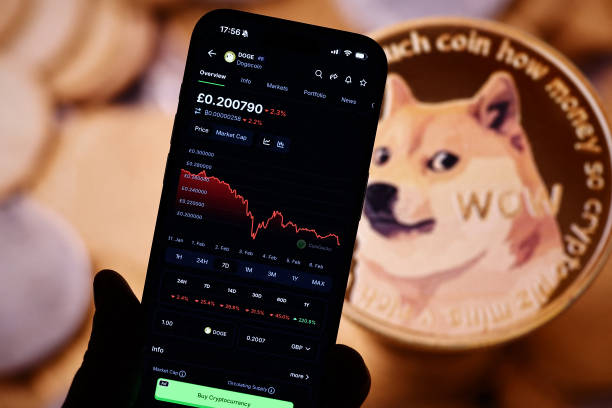What is a crypto wallet?
A crypto wallet is a piece of software that enables you to send and receive cryptocurrencies, such as Bitcoin.
They can be used to store multiple tokens and coins at once – however, most wallets will only support a limited number of cryptocurrencies.
Wallets are used to store something known as private keys: long hexadecimal codes known only to you and your wallet. They must match with a public key so you can spend your money.
Wallets come in many forms. They can be stored on hardware which is occasionally connected to the web to perform transactions (some people keep them in bank vaults the rest of the time) – you can even write the keys down on a piece of paper, which is one method of “cold storage.”
Hosted wallets are akin to traditional banking apps. You can access your balance on multiple devices, and your funds aren’t gone forever if you lose your phone or forget your password.
So what are the steps involved with creating a wallet?
Firstly, have a think about how you want to access your wallet.
Are you going to be using your mobile phone? A desktop computer? Do you want to log into a website, or use hardware which stores your keys offline? Some wallets do not work across all platforms, so this is important to bear in mind.
Next, determine whether the wallet you’re planning to use supports the cryptocurrencies that you invest in – and make sure that it’s reputable and trustworthy.
Most wallet providers offer a step-by-step guide for using their app, and the process isn’t too dissimilar from setting up an email address. It’s worth creating a back-up of your password private key and storing it safely.
Could I get in trouble for having a crypto wallet in my country?
A handful of countries have imposed laws against cryptocurrency – with others warning that regulation will be coming soon.
Bitcoin is banned in Pakistan, Nepal, Algeria, Cambodia and Bolivia – and it is illegal to pay in Bitcoin in Macedonia, Vietnam and Bangladesh.
Ecuador has also banned cryptocurrencies but plans to launch its own in the future.
If the company knows my private keys, can they steal my crypto?
Third-party wallets can be a great way to store cryptocurrency, but you need to do your due diligence first.
In theory, a company could use the private keys you have entrusted in them to steal your funds. There have also been cases where users have been unable to withdraw funds from their wallets, with those providers subsequently collapsing.
Look for established wallets which offer cutting-edge technology to protect what’s in your wallet. Given there are loads of options around, read reviews and explore the pros and cons of each provider – that way, you’ll make an informed decision.
What can I do to keep my crypto safe?
Try to use cold storage options wherever possible, especially if you are saving cryptocurrency for a rainy day. Hot storage is ideal when you are trying to create a “checking” account where funds can easily be accessed for transactions.
The first tip is to be on your guard for malicious software which can compromise security on your laptop or phone.
Second, if you are using a hosted wallet provider, always be vigilant if you receive emails which claim to be from them. A genuine message will usually contain information only they would know. “Phishing” emails from fraudsters often imitate the logos and language used by official companies to lure you into a false sense of security. Looking closely at their address can uncover clues such as small typos or a different domain, turning [email protected] to [email protected].
I’ve been sent crypto but my wallet is empty! How long does it take?
This depends on how quickly confirmations are completed on the blockchain.
It can vary between transactions, and also between cryptocurrencies.
The standard for Bitcoin is six confirmations before a transfer is complete, and this process can take about an hour depending on how much network activity there is.
Other cryptocurrencies may require a greater number of confirmations, but this doesn’t necessarily mean the transaction will be slower. For example, although 24 confirmations are required on Ether, a deposit can be completed within minutes.
I had funds in my account but now I’m on zero. Where did my money go?
This may be because your coins have been transferred to cold storage.
Some hosted wallet providers move funds out of a pay-in address and into cold storage to keep their users’ keys and personal assets safe.
When these users want to make a payment, their assets are then transferred from cold storage to their desired pay-out address.
Will I get new coins in the event of a blockchain fork?
Forks can be used to launch new coins on hosted wallets. It can take a while for them to be supported, and sometimes, crypto wallets will not support forks at all.
Usually, developers behind hosted wallets will analyze these forks, and where possible, will check a new chain for pre-mining or other suspicious behavior. If there is no evidence of this, it is likely that the hosted wallet will support the fork – and customers who already hold coins will be credited with the new asset.
This process isn’t always slow. For example, Freewallet released a Bitcoin Cash wallet two days after the Bitcoin fork and provided new coins for users. The hosted wallet became the first provider to support the fork.
Disclaimer. Cointelegraph does not endorse any content or product on this page. While we aim at providing you all important information that we could obtain, readers should do their own research before taking any actions related to the company and carry full responsibility for their decisions, nor this article can be considered as an investment advice.











